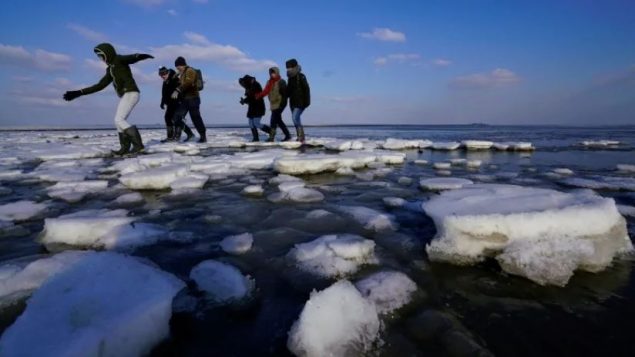There’s a link between sea-ice loss in the Arctic and frigid winter weather much further south — but it’s not what some researchers had previously thought, according to a new study.
The study, published last week in the journal Nature Climate Change, suggests sea-ice loss and unusually cold winters in the midlatitudes of North America and Asia are both caused by large changes in atmospheric circulation, which move warm air to the Arctic and cold air to the south.
Previous research suggested ice loss could be causing the chilly, southern temperatures — because as areas of open water increase, the ocean loses heat to the atmosphere, which can lead to temperature changes even far away.
But climate change models didn’t support that cause-and-effect theory.
It was “an interesting idea, that things that are happening in the Arctic could be impacting, you know, where most people live, in the midlatitudes,” said Russell Blackport, lead author of the paper and a mathematics research fellow at the University of Exeter.
“We found that things didn’t really make much sense”… more







For reasons beyond our control, and for an undetermined period of time, our comment section is now closed. However, our social networks remain open to your contributions.